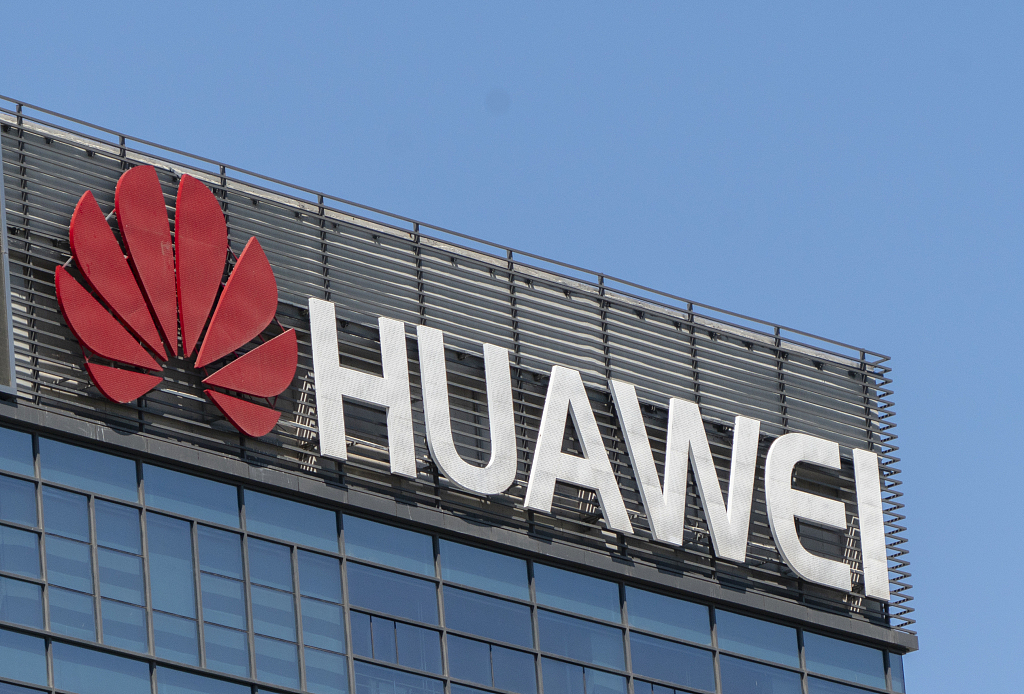US ban on Huawei detrimental to both sides
- By Zhang Maorong
 0 Comment(s)
0 Comment(s) Print
Print E-mail China.org.cn, May 22, 2019
E-mail China.org.cn, May 22, 2019

The latest U.S. measures against Huawei will strike a serious blow to the global information and communications industrial chain. Yet even as they hit Huawei, the restrictions will inflict heavy damage to corporate America as well.
Leading Chinese tech firm Huawei is internationally competitive in the information and communications industry. The U.S. ban, which comes amid the escalating trade war, is intended to hinder China's development of advanced technologies, including 5G, and further constrain China's rise.
The New York Times has called it "the most extreme move in the Trump administration's fight against China's tech sector." This reckless increase of pressure on Huawei from the U.S. side has aroused worldwide concern, as it blatantly defies international rules, undermines the global trade system and disrupts the global industrial chain and international order.
A negative impact on Huawei's operations is inevitable. A list released at the end of last year showed that more than 30 U.S. companies sell more than US$10 billion of goods to Huawei each year, making up the largest proportion of its 92 key suppliers. These include semiconductor giants Qualcomm, Intel and Broadcom, as well as software titans Microsoft and Oracle.
Semiconductor purchasing is likely to be hit worst. Huawei's HiSilicon group said it is able to ensure about half of the semiconductors needed for smartphone production. However, the products from Qualcomm, with its large number of ICT patents, seem to be irreplaceable.
However, the impact on telecommunications equipment may be even greater than on smartphones. Huawei may have to slow global shipments of its telecommunications equipment, including 5G stations.
In effect, the U.S. export control against Huawei and attempt to uncouple its domestic tech sector from China's tech sector will cause considerable harm to its own companies. In the sluggish global semiconductor market, American chip giants like Qualcomm and Micron saw a revenue slump in the fourth quarter of last year, and the growth of the industry was forecast to drop from double to single digits, with 5G and artificial intelligence (AI) as the only possible drivers. Against this backdrop, the export restriction undoubtedly spells more pressure on the entire semiconductor industry.
Statistics show that out of US$70 billion spent by Huawei on component procurement in 2018, some US$11 billion of that went to U.S. firms. John Neuffer, president of the Semiconductor Industry Association, issued a statement a few days ago urging the Trump administration to "implement these actions in a fully transparent manner that incorporates input from U.S. industry."
Huawei said that losing access to U.S. suppliers "will do significant economic harm to the American companies" and affect "tens of thousands of American jobs."
Meanwhile, although Huawei devices are not widely purchased by top U.S. telecom companies, they are prevalent in small telecom operators in rural areas of the United States. It is estimated that the blockade of Huawei may render 5G technology unavailable to those smaller, rural telecom operators for some years. Jason Oxman, president of the Information Technology Industry Council of the U.S., called the executive order "extremely broad" and said that any moves that restrict businesses' buying decisions should be based on "rigorous, evidence-based analysis of the risks."
In the wake of the blockade, Huawei's contingency plans are surfacing. Years ago, Huawei anticipated today's complications and has since attached great importance to research and development and business continuity, in order to protect its operation from significant risk. Chips are one of the major parts of Huawei's contingency plans. In addition to smartphone chips, the company has also covered their supply of chips for servers, base stations, basebands, AI, etc. And although Google has revoked Huawei's Android license, Huawei still owns its proprietary operating system. Further, since 2018, Huawei has stockpiled enough key components to cover about one year, and a supply of secondary-critical components to last at least three months. They have also made serious efforts to support the domestic supply chain, so as to minimize the impact of the blockade. The measures above have improved Huawei's ability to respond to the current complexities of the U.S. blockade and seize opportunity through continuous development.
In short, the U.S. ban on Huawei has motivated self-reliant innovation by Chinese tech companies, so as to prevent similar scenarios in the future. Back in April 2018, the U.S. government imposed an export ban on ZTE due to its violation of U.S. sanctions against Iran. The company was forced to shut down for several months and was on the verge of bankruptcy. China's tech businesses have learned from this important lesson.
In addition to Huawei, Alibaba is developing super-fast quantum computers and aims to have its first AI chips on the market by 2020. An increasing number of Chinese firms, such as Cambricon, a Shenzhen-based tech company, have stepped up to develop AI chipsets. In this regard, the blockade policies of the U.S. have, to a certain extent, played a dramatic role in promoting China's self-reliant innovation.
Zhang Maorong is a researcher for the Institute of World Economic Studies, at the China Institute of Contemporary International Relations.
The article was translated from an unabridged version published in Chinese.
Opinion articles reflect the views of their authors, not necessarily those of China.org.cn.
If you would like to contribute, please contact us at opinion@china.org.cn.






Go to Forum >>0 Comment(s)